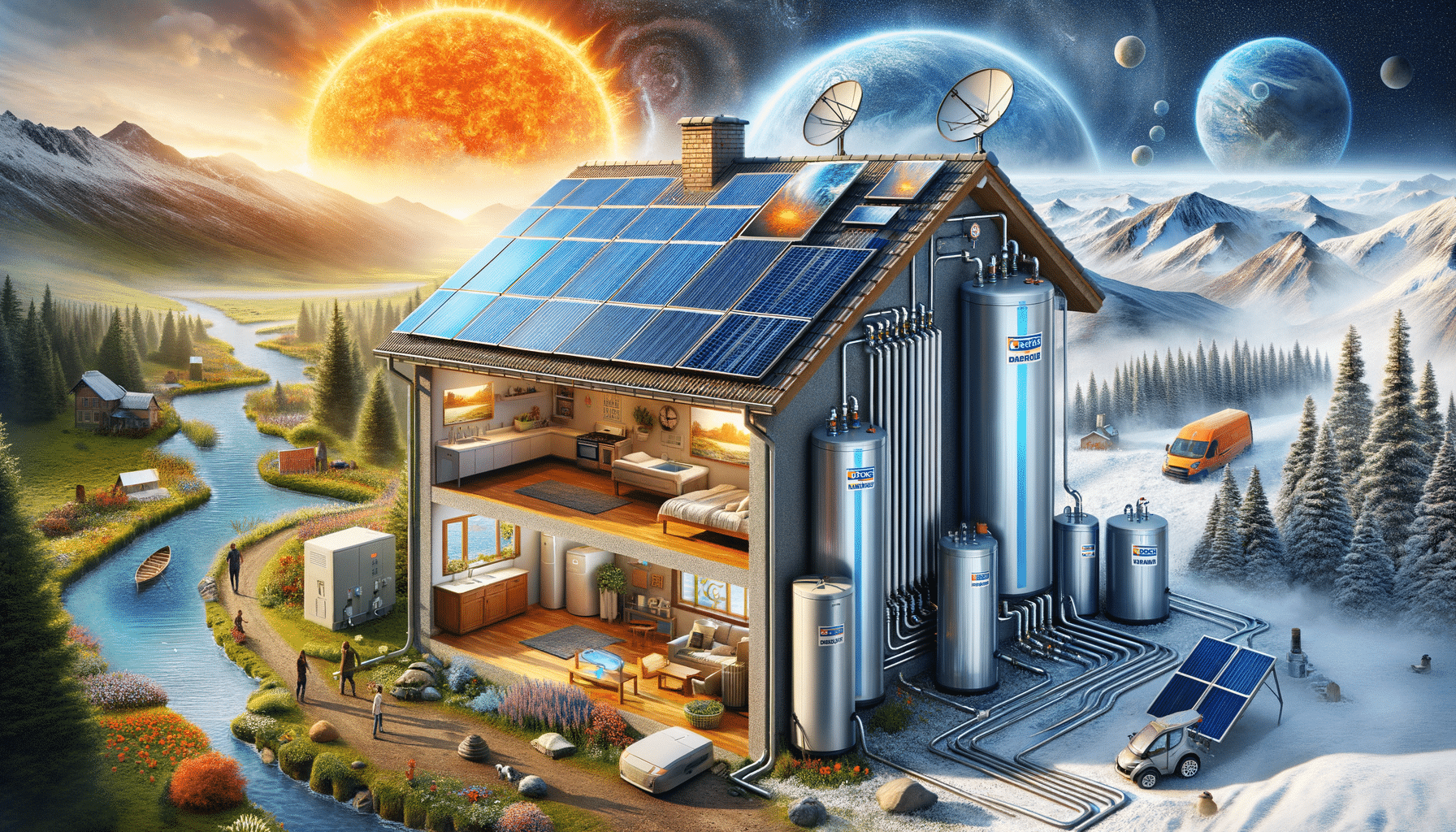
Solar Water Heaters Use Sunlight to Heat Water, Offering an Energy-Efficient Alternative for Homes and Businesses in Various Climates Year-Round
Introduction to Solar Water Heaters
As the world increasingly turns towards sustainable energy solutions, solar water heaters have emerged as a compelling option for reducing household energy consumption. By harnessing the sun’s energy, these systems offer an eco-friendly alternative to traditional water heating methods. Solar water heaters not only help cut down energy costs but also support a sustainable lifestyle by minimizing the carbon footprint. This article will explore the various types of solar water heaters, their installation, and how they contribute to a greener future.
Solar Water Heater Installation
Installing a solar water heater involves several critical steps that ensure the system operates efficiently and effectively. The installation process begins with assessing the site’s solar potential, which includes evaluating the roof’s orientation, angle, and shading. A south-facing roof with minimal shading is ideal for maximizing solar energy absorption.
Once the site assessment is complete, the next step is selecting the appropriate type of solar water heater. There are two main types: active systems, which use pumps to circulate water, and passive systems, which rely on natural convection. The choice between these depends on factors such as climate, budget, and specific water heating needs.
The installation itself involves mounting solar collectors on the roof and connecting them to a storage tank. Proper insulation and sealing are crucial to prevent heat loss and ensure the system’s longevity. Professional installation is recommended to guarantee safety and compliance with local building codes.
Overall, solar water heater installation is a worthwhile investment that pays off in energy savings and environmental benefits. By taking advantage of renewable energy, homeowners can significantly reduce their reliance on fossil fuels and contribute to a more sustainable future.
Understanding Solar Gas Water Heaters
Solar gas water heaters combine solar energy with natural gas to provide a reliable and efficient water heating solution. These systems are particularly beneficial in regions with fluctuating sunlight, as they offer a backup heating source when solar energy is insufficient.
The primary components of a solar gas water heater include solar collectors, a storage tank, and a gas burner. During sunny periods, the solar collectors absorb sunlight and heat the water, reducing the need for gas consumption. When solar energy is not enough, the gas burner kicks in to maintain the desired water temperature.
This hybrid approach ensures a consistent supply of hot water while maximizing energy efficiency. Users can enjoy the benefits of solar energy without compromising on comfort or convenience. Additionally, solar gas water heaters can lead to significant cost savings on energy bills, making them a smart choice for environmentally conscious homeowners.
By integrating solar and gas technologies, these systems offer a practical solution for sustainable water heating, demonstrating how innovation can drive the transition to renewable energy sources.
Exploring Solar Tankless Water Heaters
Solar tankless water heaters represent a cutting-edge approach to water heating, eliminating the need for a storage tank and providing hot water on demand. These systems are designed to heat water instantly as it flows through the unit, offering a continuous supply of hot water without the energy losses associated with storage tanks.
The key advantage of solar tankless water heaters is their efficiency. By heating water only when needed, they minimize energy waste and reduce utility costs. Moreover, their compact design makes them suitable for homes with limited space, providing flexibility in installation.
Incorporating solar energy into tankless systems further enhances their environmental benefits. Solar collectors preheat the water, reducing the amount of energy required for heating. This synergy between solar and tankless technologies results in a highly efficient and sustainable water heating solution.
While solar tankless water heaters may have a higher upfront cost compared to traditional systems, their long-term savings and environmental impact make them a worthy investment for those committed to sustainable living.
Conclusion: Embracing Solar Water Heating Solutions
As we continue to seek ways to reduce our environmental impact and energy consumption, solar water heaters offer a promising solution. From solar gas water heaters to innovative tankless systems, these technologies harness the power of the sun to provide efficient and sustainable water heating.
By understanding the different types of solar water heaters and their installation processes, homeowners can make informed decisions that align with their energy goals and environmental values. Whether it’s reducing energy bills or contributing to a cleaner planet, solar water heaters play a crucial role in the transition to renewable energy sources.
As the demand for sustainable solutions grows, embracing solar water heating is not just a choice but a step towards a more sustainable and eco-conscious future.


